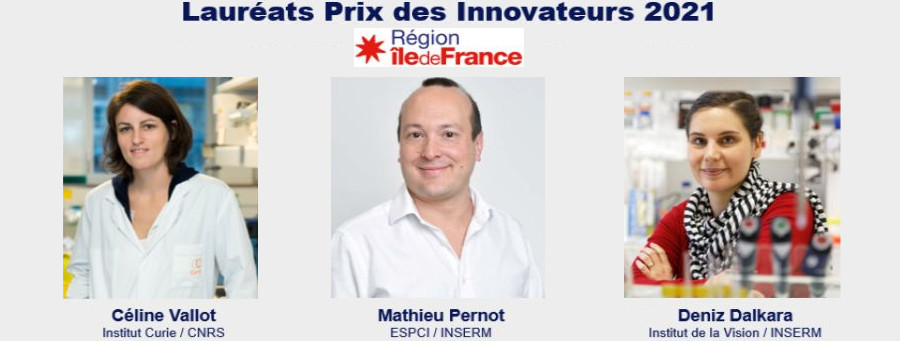
Mathieu Pernot awarded an Innovator Prize by the region Ile-de-France
The Innovator Prize from the region Ile-de-France rewards each year three researchers and their teams for the excellence and the impact of their work for the health sector. This year, Mathieu Pernot is amongst the three recipients of the Innovator Prize for inventing an ultrasonic device capable of quantifying non-invasively the myocardial stiffness, a parameter which is crucial in the diagnosis of heart failure and yet is not measurable by current medical devices.
Heart failure affects an increasing number of people (more than 15 million people in Europe) and is a major cause of death in elderly people. Only half of patients are correctly diagnosed. One reason is that the diagnosis is differential, i.e. performed by eliminating other possible diseases, for a particular type of heart failure called heart failure with preserved ejection fraction. A direct diagnosis could however be performed by measuring the stiffness of the heart muscle (myocardium), since patients suffering from this particular form of heart failure exhibit an abnormally high myocardial stiffness. Yet, there are currently no methods to access this parameter in clinical routine.
The solution developed by Mathieu Pernot and his team is the first device capable of measuring the myocardial stiffness non-invasively and in real-time. It integrates the concept of shear wave elastography in a small ultrasonic sensor, coupled with a user-friendly software. The device is cost efficient and easy-to-use, and has therefore a great potential for dissemination in clinics. The first proof-of-concept on human patients has been realized in 2015 at the European Hospital Georges Pompidou. A larger clinical trial, funded by BPI France, is ongoing in five hospitals in Paris and nearby, involving patients suffering from heart failure with preserved ejection fraction.
The device could significantly improve the management of heart failure, by providing a tool for early diagnosis and therefore help clinicians to better address the dysfunctions associated with heart failure and responsible for the high mortality rate.
The work of Mathieu Pernot’s team has also been rewarded earlier this month through the attribution of a student prize to Olivier Pedreira, PhD student. Read our post here.






